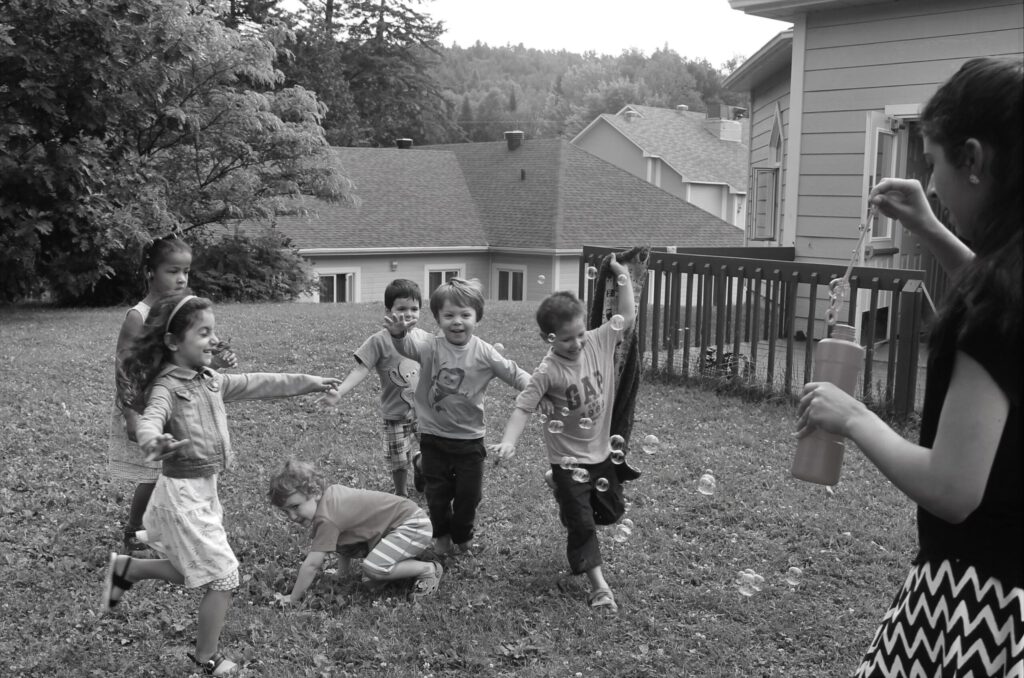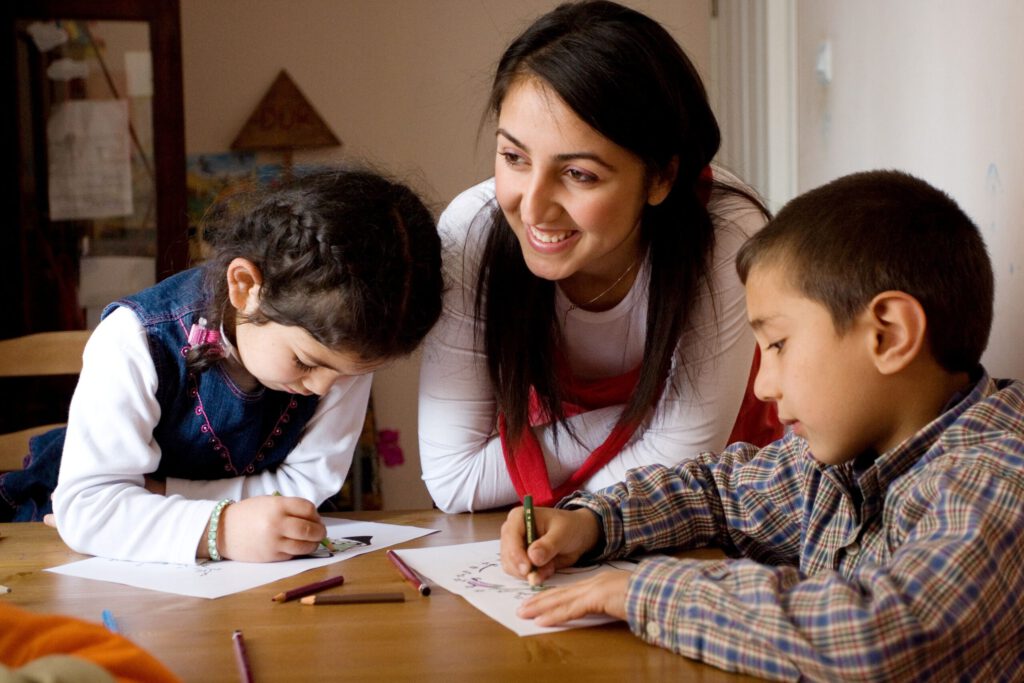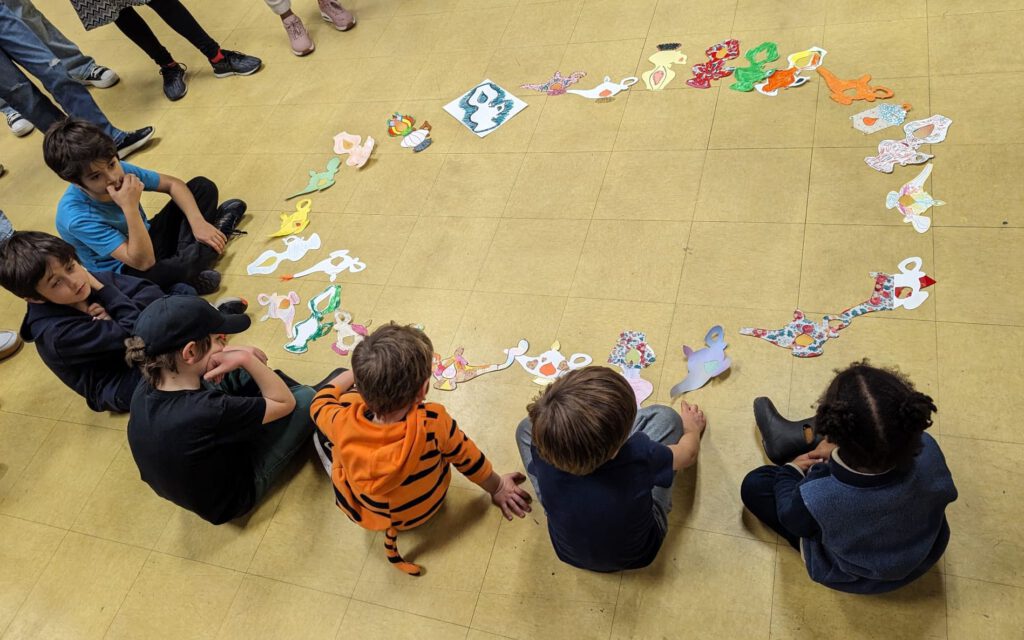Our conception of education
In a world where the joy and innocence of childhood can be so easily overwhelmed by the aggressive pursuit of materialistic ends, the moral and spiritual education of children assumes vital importance.
The program for the spiritual education of children is based on the conviction that every person is a mine rich in gems of inestimable value. All children have qualities and talents that can be developed. Every one of them can grow up to become a valuable member of society and contribute to the betterment of the world. The role of education is to reveal these gems and enable humankind to benefit from them.
A complete education must allow children to develop their physical powers and their health, their intellectual and artistic capacities, their social abilities and their spiritual qualities. It is on the latter that the program for the spiritual education of children focuses.

About the program
Each lesson explores a spiritual quality through a quote from the Bahá’í Writings accompanied by songs, stories, games and artistic activities. Below are some examples of these qualities and the quotes used for each:
- Love:
“O Friend! In the garden of thy heart plant naught but the rose of love.”
- Justice:
“Tread ye the path of justice, for this, verily, is the straight path.”
- Truthfulness:
“Truthfulness is the foundation of all human virtues.”
While the lessons use excerpts from the Bahá’í Writings, it is important to note that the program is not one of religious instruction. Rather than imposing beliefs, it aims to foster a love for knowledge, an open attitude towards learning, and a constant desire to investigate reality. In a world in which political, economic and cultural powers promote patterns of belief and behavior that serve their own interests, the program seeks to equip children with spiritual principles that will guide them in their efforts to create a better world.

Educational material
The lessons of the program are drawn from the third book in the sequence of courses designed by the Ruhi Institute, the study of which also serves as training for those who wish to serve as children’s class teachers. An example of a full lesson can be found here:
In practice
Children’s classes may be held regularly in various gathering places, such as a private residence, a community center or a park. Additionally, festivals for children are joyous occasions to gather several groups of families a few times per year.

Testimonials
Testimonials from children participating in the children’s spiritual education program:
“My favorite thing about the children’s classes is when we colour and we sing prayers.”
“I like the children’s class because we do lots of fun activities with the children and I like riddles, drawings and stories.”
Testimonials from parents:
“Spirituality expressed through music and art makes my children joyful and influences them positively in their daily life.”
“We are very grateful for this opportunity to strengthen our children’s friendships based on great values.”


